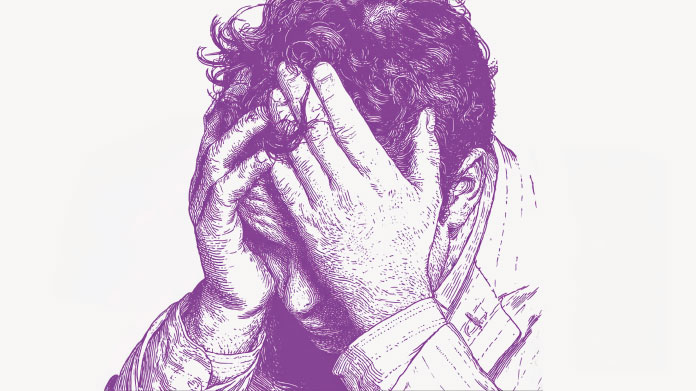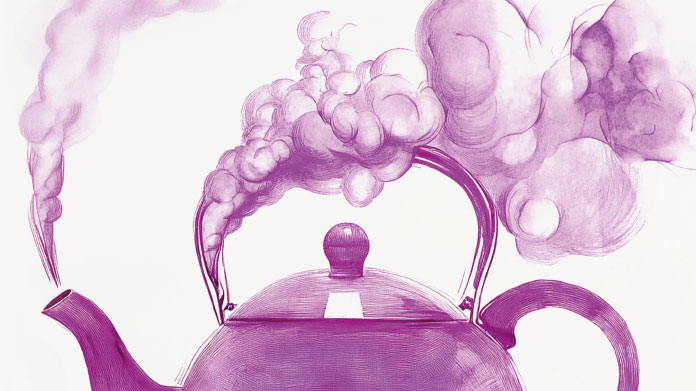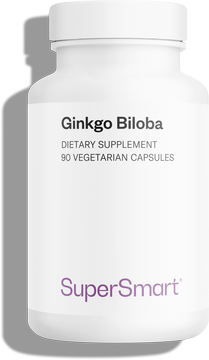10 tips for living with COVID-19 quarantine
In many countries, a large percentage of the population is being told to stay at home in order to stem the progress of the coronavirus. Here we offer some advice on how to get organised, stay in shape and keep your spirits up.

Maintain your normal pace of life
The first tip is to try and keep to the same routine.
By doing so, you’re much less likely to feel ‘out of sync’ with normal life. Get up at your usual time, get dressed, keep to your regular office hours if you’re teleworking, and above all, try to get enough sleep: remember that good quality sleep is widely-known to relieve stress and depression (1).
Maintaining a degree of continuity in this way will stop you from feeling overwhelmed and help keep your spirits up.
Are you teleworking? Then make sure your workspace is clearly defined
At present, some people are still going to their place of work (doctors, nurses, pharmacists, supermarket and bank employees, labourers, laundry and garage workers …), some are confined to home unable to work, while others have had to switch to teleworking (also called ‘home office’).
If you’re in the latter category, try and ensure you have a clearly-defined work space as it will help you separate your professional life from your private one. You’ll also be more effective in your work tasks, and more relaxed when you switch off.
Take some exercise
Even when quarantined, it’s important to remain physically active! Exercise helps to both improve the antipathogenic activity of macrophages and stimulate circulation of immunoglobulins, neutrophils and NK cells. (2)
You can opt for indoor workouts (press-ups, step aerobics, exercise bikes, weights …) or outdoor activities (walking, running, cycling ...) It depends on the country, but generally speaking, you’re still allowed to exercise on your own in parks or in forests as long as you keep at least 2 metres away from anyone else.
It’s worth knowing that certain dietary supplements can help reduce sore muscles (L-Citrulline) or facilitate recovery (L-Glutamine). Taking exercise will also help you sleep better. (3)
Maintain contact with your loved ones using Skype, WhatsApp...
When you find yourself cut off from other people, it’s not unnatural for your thoughts to go round and round in circles and for psychosomatic symptoms to develop. We all become much less rational when we’re isolated.
Fortunately, all you need is a smartphone, an internet connection and the right app (Skype, WhatsApp, Messenger, FaceTime...) to make video calls and maintain social relations. These digital tools can significantly reduce the challenges posed by ‘social distancing’, help you keep some perspective on the situation and be mutually uplifting to you and your friends and family. All without contaminating anyone. What’s more, these highly popular apps are all free.
Remote access to a health professional is also possible via video calls!
Eat healthily and stay well-hydrated
You may find yourself having to cook more, but having a break from your perhaps usual sandwiches or fast food could well be beneficial! It’s the perfect opportunity to improve your eating habits by opting for a varied, balanced diet. Not to mention the fact that numerous nutrients play a crucial role in strengthening your body’s immune defences, and will thus boost your protection from infections.
As always, we particularly recommend increasing your intake of:
- vitamin C, well-known for supporting various cellular functions of the immune system. (4) Amongst others, it’s found in yellow peppers, fresh parsley and kiwi fruit, but you can also obtain optimal levels from an appropriate supplement (such as Asc2P);
- iron, vital for the proliferation and maturation of immune cells, especially lymphocytes. (5) Iron is found in foods such as black pudding, coriander seeds and cooked spinach, or in supplement form (Iron Bisglycinate) ;
- probiotics, the beneficial bacteria which ensure balance in the body’s gut flora, and which therefore play a huge part in our defences. (6) Probiotics are found in some yogurts and in pickled foods such as gherkins. To maximise your probiotic intake, you could also start a course of nutritional supplements such as Probio Forte™.
And of course cooking can be one of the most enjoyable creative and recreational activities! Finally, make sure you have your water bottle or flask to hand and remember to drink plenty of fluid to maintain good levels of hydration.
Take advantage of this enforced confinement to tackle your ‘to do list’
There can’t be many of us stuck in quarantine who haven’t got at least one particular job that needs doing. This is the perfect time to start ‘ticking off’ all those annoying little tasks that you never seem to have time to do. Finally, there’s a chance to:
- deal with various ‘life admin’ on line
- do some internet shopping (birthday presents, headphones, cat litter ...)
- sort out your clothes
- back up your computer or smartphone
- sort through your holiday photos, and even create an album on a dedicated website
- d'put up that self-assembly shelving unit that’s still in its box, etc.
On-line films, learning, museums ...
Having to stay indoors also provides an opportunity to enjoy some good films at home, or binge-watch some exciting new series. Or how about discovering some new music and reading (or re-reading) a good book?
Confinement also gives you the chance to learn something new. Choose a Youtube tutorial or a MOOC (Massive Open Online Course, universally-accessible on-line training) on an activity that interests you and you could be using this time to throw yourself into learning computer programming, Portuguese, music theory or mechanics …
If you’re a culture-vulture, you can also visit museums online:
- the Louvre
- the British Museum in London
- the Van Gogh Museum in Amsterdam
- the Prado in Madrid
- MoMA in New York...
Meditation or yoga to relieve the stress of isolation
As discussed, the inability to do as you please, coupled with a relative lack of human interaction, inevitably has psychological consequences and can result in a certain amount of anxiety. This is entirely natural and there are simple ways of dealing with it.
For example, you could learn the art of meditation or yoga. Re-educate yourself by practising breathing techniques and/or adopting postures that are good for your body. (7)
And while it’s important not to cut yourself off from the world ... it’s also sensible to switch off the news from time to time so that you don’t become overwhelmed by the constant flow of negativity which is ultimately damaging to health. Refocus on your daily life or future projects … and above all, relax. These supplements can help you to de-stress: AFA Extract, Gaba and Peptidea®.
Spring cleaning!
An important reminder. Don’t forget to religiously follow the hygiene rules announced at the beginning of the COVID-19 crisis:
- keep your distance from other people on the rare occasions you go out
- wash your hands regularly
- if you have to sneeze, do so into a disposable tissue
- avoid contact with elderly or unwell individuals
- and call 111 (do not go to the hospital or doctor) and wear a surgical mask if you think you’ve been infected.
Being confined to home can also be an opportunity to do a thorough house-clean. Think about regularly airing rooms and every now and again, disinfect door handles, toilets and even your smartphone, a veritable breeding ground for germs, taking care not to damage your touch screen.
For those who also want to ‘deep clean’ their body, opt for nutritional supplements specifically formulated to boost immunity, such as:
- AHCC, an immunostimulant based on shiitake mushrooms, which encourages the activity of lymphocyte killer cells (8)
- Lactoferrin, a component of breast milk which reduces the risk of infection (9)
- and Goji Berry Extract, developed to improve the body’s resistance to pathogens (10).
For parents: how can you keep young children occupied during this period of confinement?
If you have young children at home and you’re trying to keep them occupied in these challenging times:
We’d again recommend keeping to a schedule based on a normal school day: make sure your children get dressed rather than letting them stay in their pyjamas, ‘home-school’ them for part of the day, and give them recreation time, etc. Try not to just give orders all the time - instead keep a sense of playfulness so that these extended, ‘hemmed-in’ days are as stress-free as possible.
Of course, it’s also an opportunity for your little ones to:
- read picture books
- enjoy creative pursuits (drawing, colouring, playing with toys, creating a puppet theatre ...)
- watch films, cartoons and documentaries for children (but don’t let them have too much screen time)
- dance and do ‘indoor obstacle courses’
- do puzzles, play board games ‘Pictionary’, ‘Scattergories’...) and video games, etc.
Do you have teenagers? Try to let them have some time to themselves. At this age, being deprived of your freedom is even harder to bear.
Happy lockdown everyone!
We at SuperSmart would also like to take this opportunity to send our warmest wishes to all the healthcare professionals battling this virus, as well as to all those currently suffering from COVID-19.
References
- Eugene AR, Masiak J. The Neuroprotective Aspects of Sleep. MEDtube Sci. 2015;3(1):35–40.
- Nieman DC, Wentz LM. Le lien incontournable entre l'activité physique et le système de défense du corps. J Sport Health Sci. 2019; 8 (3): 201-217.
- Watson AM. Sleep and Athletic Performance. Curr Sports Med Rep. 2017;16(6):413–418.
- Carr AC, Maggini S. Vitamin C and Immune Function. Nutrients. 2017;9(11):1211. Published 2017 Nov 3.
- Soyano A, Gómez M. Participación del hierro en la inmunidad y su relación con las infecciones [Role of iron in immunity and its relation with infections]. Arch Latinoam Nutr. 1999;49(3 Suppl 2):40S–46S.
- Yan F, Polk DB. Probiotics and immune health. Curr Opin Gastroenterol. 2011;27(6):496–501.
- Shohani M, Badfar G, Nasirkandy MP, et al. The Effect of Yoga on Stress, Anxiety, and Depression in Women. Int J Prev Med. 2018;9:21. Published 2018 Feb 21.
- Olamigoke L, Mansoor E, Mann V, et al. AHCC Activation and Selection of Human Lymphocytes via Genotypic and Phenotypic Changes to an Adherent Cell Type: A Possible Novel Mechanism of T Cell Activation. Evid Based Complement Alternat Med. 2015;2015:508746.
- Wakabayashi H, Oda H, Yamauchi K, Abe F. Lactoferrin for prevention of common viral infections. J Infect Chemother. 2014;20(11):666–671.
- Ma ZF, Zhang H, Teh SS, et al. Goji Berries as a Potential Natural Antioxidant Medicine: An Insight into Their Molecular Mechanisms of Action. Oxid Med Cell Longev. 2019;2019:2437397. Published 2019 Jan 9. doi:10.1155/2019/2437397.
Keywords
12 Hours
Good quality product and customer service.
So far, I'm liking this product, and the customer service was very good.
ELZL
7 Days
The products I use are excel·lent
The products I use are excel·lent
ROSAS Josep Maria
15 Days
Delivery is prompt and I never saw a…
Delivery is prompt and I never saw a quality problem with the manufacturing. It is not possible to assess efficacy on a personal basis, since too many factors come into play. Efficacy can only be assessed statistically with a sufficient number of cases.
Roger De Backer
16 Days
I collaborates with the Supersmart…
I collaborates with the Supersmart more than 10 years. Every thing is going good. Quality of the things is good. Delivery comes in time. Five stars definitely !!!
Oleksiy
16 Days
All good
Simple, frictionless site, easy ordering, good delivery updates and execution.
Chris Robbins
18 Days
I feel better
I feel better
Peter Ammann
18 Days
Prompt delivery
Prompt delivery
JAKUB Radisch
20 Days
My new go-to for top quality supplements!
I am buying more and more of my supplements from this superb, high quality company. Cannot recommend it enough. Plus, excellent customer service with a quick, helpful team and speedy deliveries. Highly recommend Supersmart!
Cecilie H.
23 Days
SUPERSMART WHAT ELSE👍
SUPERSMART WHAT ELSE👍
DIEDERLE Christophe
26 Days
Excellent quality products with…
Excellent quality products with innovative formulas, as someone who has been suffering with acid reflux, these supplements have been lifesavers.
Oriana Moniz
26 Days
high quality supplement!
high quality supplement!
GALANT
27 Days
Good service prompt delivery
Good service prompt delivery
Mrs Marcella Reeves
32 Days
I like your clear explanation
I like your clear explanation. And how to make a choice of products for a specific health problem
Ingrid
38 Days
Great product and it arrives quickly.
Great product and it arrives quickly.
SOMMARIVA Gianni
39 Days
Excellent products and fast service.
Excellent products and fast service. What do we need more?
Margarida





